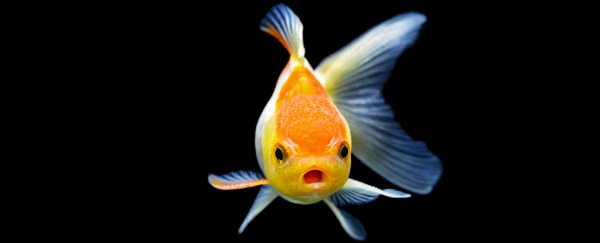Just because you're done with a Prozac pill, it doesn't mean the pill is done. In fact, when you swallow something like an antidepressant, that's not the end of the drug's journey in the world. It's the beginning.
Most pharmaceutical drugs, including psychoactive medications such as fluoxetine (made famous under the Prozac brand), are only partially absorbed by the body when they're ingested.
The rest of the chemical subsequently ends up in your toilet, where it enters the sewage system.
From there, whatever doesn't get caught in wastewater treatment plants ultimately makes its way out into the ocean, unwittingly prescribed en masse to the marine wildlife living there. They were never patients, but they take the dregs of our doses all the same.
There is nothing new about this. Studies have shown that downstream pollution from antidepressants essentially bathes fish in a drug soup – an insidious phenomenon that can affect their behaviour in strange ways we're still only beginning to understand.
"Collateral effects of psychoactive pollutants on wildlife are of increasing concern," a research team led by evolutionary ecologist Giovanni Polverino from the University of Western Australia explains in a new study.
"Psychoactive drugs target receptors of the human brain that are evolutionarily conserved throughout the animal kingdom; so it is perhaps not surprising that they can affect non-target species."
Just what the limits are of this unintended drug delivery remains an open question, but scientists think fish in the wild could have virtually all aspects of their behaviour altered by bioactive contaminants: activity, sociality, feeding, migration, mating, and more.
One of the biggest unknowns is how drugs like this may change animals at the individual level, since most research into the phenomenon to date has sought to measure averaged effects in groups of fish.
To probe further, Polverino and his team ran a two-year experiment in the lab, subjecting generations of guppies (Poecilia reticulata) to targeted concentrations of fluoxetine at low levels, on par with the chemical's pollution in aquatic environments, as well as high levels.
The results were stark: the fish on antidepressants seemed to lose their capability for individuality as a result of their exposure, with variations in behaviour between separate animals diminishing as the dose got stronger.
Basically, they all started acting the same.
"The key finding is that chronic exposure to even very low concentrations of fluoxetine erodes variation in activity levels between individuals," the authors write.
Of itself, that doesn't necessarily sound like a death sentence, but it could amount to one over a long-enough timescale – since differences in things like risk-taking and other sorts of behavioural strategies among animals are known to benefit species through a variety of ecological and evolutionary processes.
For example, more active and risk-prone individuals are likely to secure more resources and enjoy greater reproductive success, in turn bolstering species' fitness, genetic diversity, and overall resilience, the researchers say.
If every animal starts acting the same way, though – living their similar, dosed-up lives adrift in a sea of antidepressants and who knows what else – well, the writing could be on the wall.
"For fish populations to thrive in the face of environmental change, members of a group need to behave differently from each other," Polverino says.
"Unfortunately, we found that such behavioural diversity is eroded in fish populations exposed to fluoxetine, and might place large groups of fish at an increased risk of perishing in a changing and increasingly polluted world."
Of course, even though the researchers tried to replicate what actual levels of exposure to fluoxetine in the ocean might be, there are limitations to what their two-year experiment in laboratory settings can tell us.
We're still only looking at results from an animal model here, and it's possible marine life in the ocean might be exposed and affected somehow differently to this, at least until future research can test things further in the wild.
But then again, maybe the researchers' experiment isn't the one we should concern ourselves with.
After all, the real experiment here began nearly half a century ago, when fluoxetine was engineered as a means of treating depression. It was launched in the US market as Prozac in 1988, and became a generic medicine in 2001.
To this day, it's one of the most commonly sold prescription drugs in the world, being prescribed over 25 million times in the US in 2018.
And all that time, it's been washing into the ocean.
The findings are reported in Proceedings of the Royal Society B.
